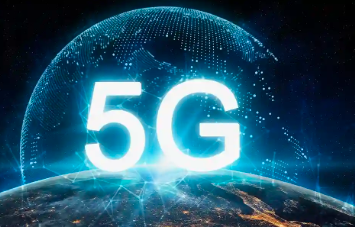The arrival of 5G technology is set to transform many aspects of modern cities, especially those that are moving towards becoming smart cities. With smart city 5g networks, urban infrastructure and services can be improved significantly, creating more efficient and sustainable environments for residents. This article explores how 5G will impact city life by enhancing various aspects of urban infrastructure and services.
Contents
1. Improving Traffic Management and Transportation
One of the most significant benefits of 5G in urban settings is improving traffic management and transportation systems. 5G networks provide ultra-fast data speeds and low latency, allowing real-time communication between vehicles, traffic signals, and monitoring systems.
This means that smart traffic lights can adjust in real time to reduce congestion, and public transportation systems can provide more accurate schedules and updates. With these advancements, cities can reduce traffic jams, improve road safety, and create a smoother commuter experience.
2. Enhancing Public Safety and Emergency Services
5G networks will also be crucial in enhancing public safety and emergency services in cities. With the capability to support many connected devices, 5G can improve surveillance systems, making monitoring public spaces and detecting potential threats easier.
Emergency services like police, fire, and medical teams can benefit from faster communication and more accurate data, enabling quicker responses during emergencies. For instance, drones equipped with 5G connectivity can be deployed to assess accident scenes or natural disasters, providing live video feeds to emergency responders. This can help in saving lives and managing situations more effectively.
3. Supporting Smart Infrastructure and Utilities
Cities rely on various infrastructure and utility systems, such as water supply, electricity, and waste management. 5G technology can enhance these systems by enabling better data collection and analysis. For example, smart grids can use 5G to balance energy supply and demand more efficiently, reducing power outages and lowering costs.
Similarly, water management systems can use real-time data to detect leaks or monitor water quality, ensuring a reliable and safe water supply for residents. With smart infrastructure supported by 5G, cities can become more sustainable and resource-efficient.
4. Enabling Advanced Healthcare Services
The integration of 5G into urban settings will also revolutionize healthcare services. High-speed 5G connectivity can support telemedicine, allowing doctors to diagnose and treat patients remotely, which is especially beneficial in densely populated areas.
Moreover, 5G can facilitate real-time data transfer between medical devices, enabling better monitoring of patients’ health conditions. For instance, wearable devices can provide instant updates to healthcare providers, ensuring timely medical interventions when necessary. This can help reduce the burden on hospitals and improve overall public health.
5. Enhancing Connectivity for Smart Buildings and Homes
Smart buildings and homes are a critical component of smart cities, and 5G can take them to the next level by providing seamless connectivity. With faster data speeds and greater capacity, 5G enables smart buildings to manage better energy usage, lighting, security, and climate control. 4
For residents, this means more comfortable and efficient living spaces responsive to their needs. Smart buildings equipped with 5G can enhance productivity for businesses by providing reliable internet connectivity and automating routine tasks. As a result, both residential and commercial buildings can benefit from a smarter, more connected environment.
Sand Technologies states, “Smart cities use technology to gather and analyze data from many sources to improve all aspects of city life. Data collection and transmission are foundational for smart city projects, and 5G’s speed and capacity enable smart-city advancements at a remarkable pace.”
The implementation of smart city 5 G networks is set to transform urban infrastructure and services, making cities more efficient, safe, and sustainable. From improving traffic management and public safety to supporting smart utilities and healthcare, 5G technology will enable cities to become more responsive to their residents’ needs. As more cities embrace 5G, the benefits of smarter, more connected urban environments will become increasingly apparent, paving the way for the future of smart cities.




